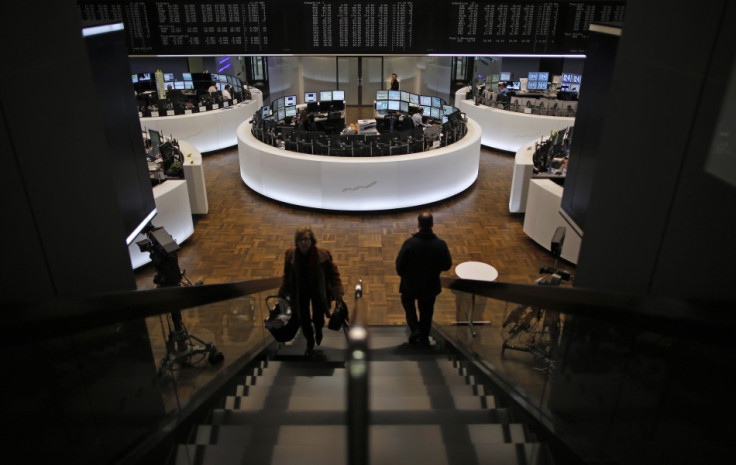European Shares Extend Losses After Factory Data, Italy Bond Sale

European shares extended their second day of losses Wednesday after poor factory output data and a difficult bond sale from Italy rekindled investor concerns about the Eurozone's economic recovery.
The broadest measure of blue chip share performance, the FTSE Eurofirst 300, fell by 0.35 percent, or 3.95 points, to 1,190.07 following the data release, which showed a surprise 0.4 percent slippage in January factory output around the Eurozone. At around the same time, Italy's treasury raised around €7.5bn in a four-part bond sale that saw a big increase in borrowing costs for the region's third-largest economy as its political leaders struggle to form a government following last month's inconclusive elections.
The regular Tesoro auction saw sales of bonds maturing in 2015, 2018 and 2028 as well as a floating rate note issue maturing in 2017. Collectively, the sales raised €7.542bn but represented significant cost increases for the Italian taxpayer.
Investors demanded an extra 118 basis points, or 1.18 percent, for the benchmark three-year bonds, which carry a 2.75 coupon, than during a similar sale on 13 February. Demand was also muted, with investors bidding €1.28 for every €1 for sale, compared to €1.37 last month.
Benchmark 10-year Italian government bond yields rose 8 basis points following the mid-morning sale and were quoted at 4.68 percent on the Tradeweb trading platform. Similar German bunds, by contrast, rallied 2 basis points to 1.46 percent as investors sought the more highly-rated debt of the region's biggest economy. German bund futures rose 24 ticks on the session to trade at 143.28.
The European single currency fell below $1.30 against the US dollar to trade at $1.2998 following the Italian auction.
Italy's FTSE MIB stock index fell more than 1 percent by mid-morning to 15,8638.11, the lowest level since 5 March. Britain's FTSE 100 slipped 0.8 percent to 6,547.14 while Germany's DAX fell 0.21 percent to 7,949.49.
Industrial production around the Eurozone fell by 0.4 percent in January, Eurostat reported, as capital goods and energy production recorded steeper-than-expected declines.
The figures suggest the Eurozone economy, which shrank by 0.6 percent in the final three months of last year and has recorded five consecutive quarters of contraction, will likely struggle to exit recession in the first quarter of 2013.
Morgan Stanely cut its Eurozone growth forecast to -0.7 percent this year, from a previous estimate of -0.5 precent, citing weakness in Italy, France, Portugal and the Netherlands.
"While we spot some green shoots here and there around the euro area, they are still very timid, as many indicators remain subdued and meaningful improvements are largely confined to the manufacturing sector," said economist Elga Bartsch in a client note published Wednesday. "As a result of the growth downgrade, we should seesome more fiscal slippage across many euro area countries."
"The inconclusive results of the Italian parliamentary elections on February 24-25 make it unlikely that a stable new government can be formed in the next few weeks," Fitch Ratings said in a report issued when it lowered the country's rating one notch to BBB+. "The increased political uncertainty and non-conducive backdrop for further structural reform measures constitute a further adverse shock to the real economy amidst the deep recession."
Fitch estimates that Italy's economy will shrink by around 1.8 percent this year, 0.8 percent more than the EC's estimate. Outgoing Prime Minister Mario Monti's last assessment pegged the contraction at -0.2 percent.
© Copyright IBTimes 2025. All rights reserved.





















